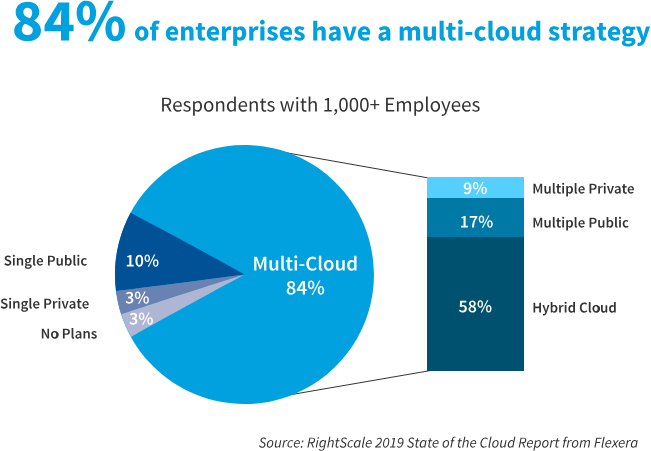The term cloud computing refers to IT services that are delivered to the user from remote servers without the client needing to have active involvement with the source. In most cases, the user only pays for what they use similar to utility billing and, as a result, does not have to shoulder the burden of large IT infrastructure costs. A growing number of cloud hosting options are available, and there is a consistent whirlwind of discussion about which options are best for businesses of all shapes and sizes. Ultimately, assessing the cloud computing needs for startups should be done on a case-to-case basis and according to the specific requirements of the individual company.
Why is it called the “cloud”?
As most cloud computing is delivered via the internet, the notion that these services float above the material components of computing has meant that “the cloud” has become a useful descriptor.
The cloud offers a host of remote IT solutions—from infrastructure to development to storage to AI to analytics. Arguably the most talked about of the services are Infrastructure as a Service (IaaS) and Platform as a Service (PaaS). In the case of the former, the user is able to tap into an existing IT infrastructure rather than build one themselves. In the latter, the selected platform provides the frameworks for development rather than the user having to install the necessary (often cumbersome and expensive) elements internally.
So what are the tangible benefits to you as a startup? You’ll be pleased to know that there are many.
Why use the cloud?
To use a real estate property analogy, using the cloud is akin to renting rather than buying. The “renter” is provided full access to the use of various IT solutions without having to make the commitment to purchase, and you can significantly decrease your time to market because you can set up your infrastructure in minutes instead of weeks. The result is that technology startups who are not in a position to “buy” can minimize their overheads, launch their projects successfully, and not get bogged down with IT maintenance issues.
Essentially, the cloud opens up possibilities that were simply not available to startups before, and this is how:
Cost
Perhaps the most obvious benefit of cloud computing is in not having to fork out large costs for computing infrastructure in advance. As cloud computing involves only paying for what you use, it is a simple way to ensure your computing needs are within budget—with no major upfront capital or planning needed.
Versatility
What can you use cloud computing for in your business? The quick answer is for almost any computing needs you have:
IT infrastructure (IaaS)? Check.
Analytics? Check.
Hosting and Development (PaaS)? Check.
Office management applications? Check.
Networking solutions? Check.
Storage? Check.
Backup? Check and checked again.
Scale
Cloud computing offers a huge possibility when it comes to the issue of scale. If (or rather, when) your business grows, cloud computing provides mechanisms for your computing capabilities to expand or shrink to handle demand. You need not fall into a situation where you don’t have the infrastructural bandwidth to deal with the new demands placed on your business or overpay for capacity that you don’t need right now. Netflix has cited scale as one of the primary reasons for their migration to cloud computing.
Efficiency
Why would you want IT management to unnecessarily take up an inordinate amount of your time when you could simply get someone else to do it for you? When it comes to cloud computing needs for startups, productivity should not be left out of the discussion. There is no need to busy yourself with computer housekeeping—you have bigger fish to fry. You should also be sure to properly invest in designing a sound architecture with monitoring, redundancies, and availability. Doing so will help you sleep better at night because you cannot simply buy or rent Cloud services and call your project completed. If you want to achieve maximum efficiency, you have to properly set up your cloud computing efforts using technical resources.
Security
In a somewhat outdated perspective, people have steered away from cloud computing thinking that data could be compromised if not hosted locally. The reality is, in fact, the opposite. The major cloud hosting solutions make the security of your data a non-negotiable priority and are able to offer data encryption and secure connections (Secure Sockets Layer) to their platforms. Many of these services conform to very rigorous standards like the Health Insurance Portability and Accountability Act (HIPAA).
Convinced that cloud computing is an avenue your startup needs to take to support your current work? It’s time to move on to your options:
Best cloud hosting for startups
You have more than likely heard of at least some of the big names. To mention a few:
-
AWS (Amazon Web Services)
-
Microsoft Azure
-
Google Cloud
-
DigitalOcean
-
IBM Cloud
How do you decide which option is the best one for you?
Factors such as pricing, features, customer service and usability will all come into play as you make your decision—but perhaps the choice is not between the various options, but in seeing how you can combine them.
According to the RightScale State of the Cloud Report, enterprises are generally opting for a multi-cloud approach:

So why is this multi-cloud approach so popular?
The multi-cloud strategy involves using two or more public cloud solutions in your business. While initially used to combat fears about putting all your eggs in one cloud (to use an appalling mix of metaphors), the worth of this approach has become increasingly apparent in a host of areas. Perhaps one of the most important to highlight is that you can tailor-make your cloud solutions according to your needs and take the best of what each option has to offer. In addition, this strategy can help you meet laws and policies around data location.
In Conclusion
Even if this is your first encounter with the definition of the term, chances are you are already using cloud computing in some form or another. You may be using Google Photos to store the photographs you take on your phone or Siri to find the answers to life’s biggest questions. (Yes, even Apple has made the migration over to cloud computing in certain areas of their business.)
Migrating to, or starting with, the cloud is an efficient way to take care of the IT needs of your startup, without having to cripple yourself with major overheads and infrastructure that needs to be maintained. Reviewing your cloud computing needs with a proven software development company is a
The first step to meeting cloud computing needs for startups is to identify what they are. Once you have done so, you can put together a unique strategy that services them. Additionally, reviewing your cloud computing needs with a proven software development company will help better understand your requirements.


